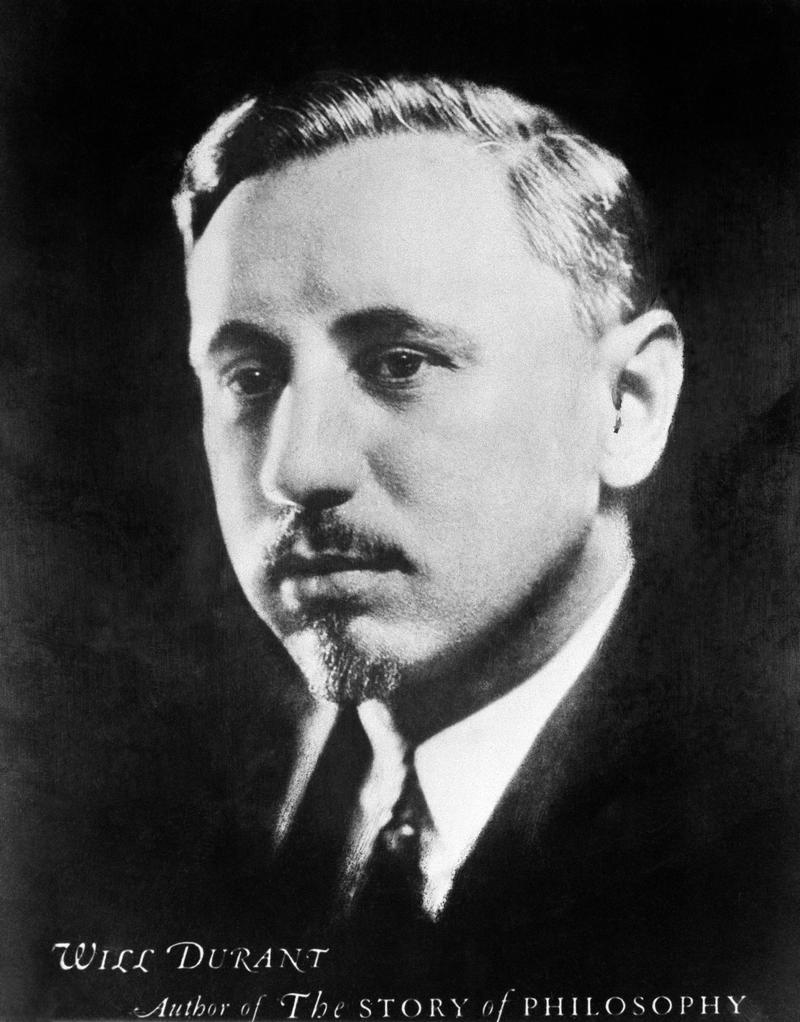
From the September 1940 WQXR Program Guide:
Dr. Durant, known to all as the author of "The Story of Philosophy," and the recent best-seller, "The Life of Greece," gives his reactions to music in the following brief "confessions."
I am grateful to WQXR because it enables me to enjoy my reactionary taste in music. Occasionally it turns on, out of courtesy to my children, some modernistic explosion, but then I pay no attention to it. It is like a magnificent concert from which one may escape, and to which one may return, as the program proceeds, without occasioning any social disturbance, or betraying one's age.
I feel my age more in music than in anything else except my joints. I have long since ceased to tune in on any station but WQXR, for even the Philharmonic broadcasts may go modern on me at any moment.
My children assure me that this allergy to contemporary compositions has characterized old fogies in every generation; and I know just enough history to acknowledge that they are right. Bach was in disfavor for the unheard-of complexity of his masses and chorales; Beethoven was denounced as a revolutionist in music; only a deaf man, some critics felt, could tolerate the Ninth Symphony, or the later quartets. To make matters worse, I agree with those critics; even in 1820 I would have been behind the times. Worst of all, I like some of Stokowski's orchestrations of Bach more than I like the original compositions. I am the last man in America who should be asked to write anything about music.
In my calmer moments I realize that any living art must make experiments. It cannot forever be putting new wine into old bottles, new themes into old sonata forms; painters can't go on endlessly painting like Raphael, or even like Cezanne, and composers must get beyond B in their doxology. So I like the work of Vaughan Williams, and something of Stravinsky and Shostakovich. But I check off for especial attention, on my WQXR programs, every bit of Handel, Vivaldi, Bach and Mozart that I can find. I know that their music will be healthy, that it won't disturb my scholastic peace with revolutionary etudes, that it will be pure music, not sicklied o'er with the pale cast of thought, but happy in the joy of flowing, leaping, sound. I should have been buried long ago.
So I honor WQXR. It does not give in to my prejudices, but it provides me with such a feast of the music I like that I have always asked myself, How can I express my appreciation? It is incredible that by the turn of my finger I can draw out of the wall, through this station's benevolence, such music as makes me wonder how Pythagoras could have been guilty of so inverted a statement as that "Philosophy is the highest music." Where philosophy and poetry end, music begins.
